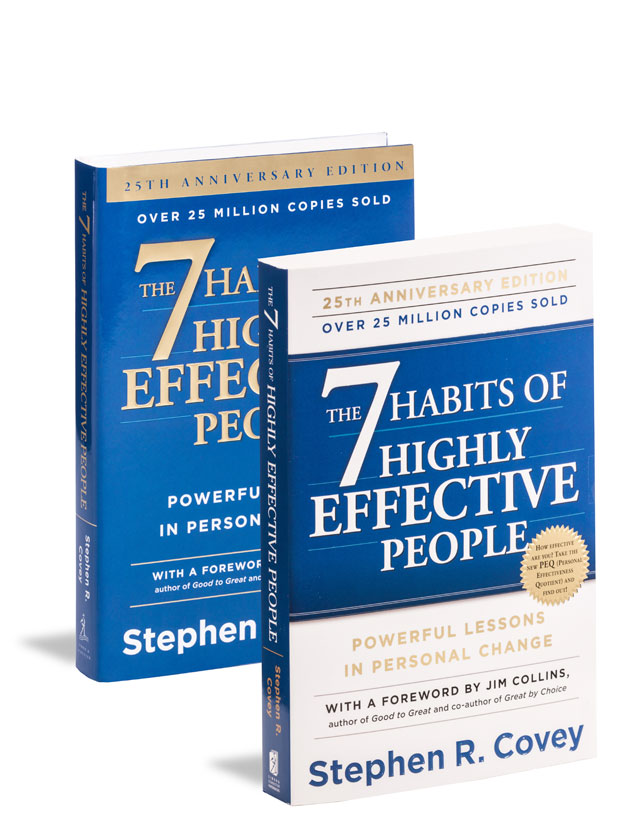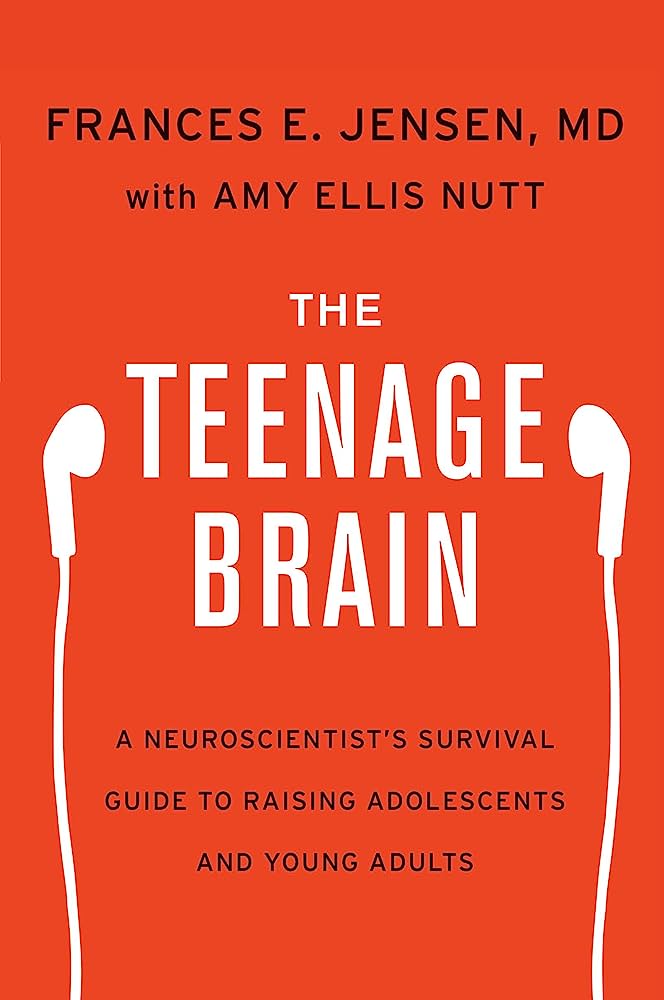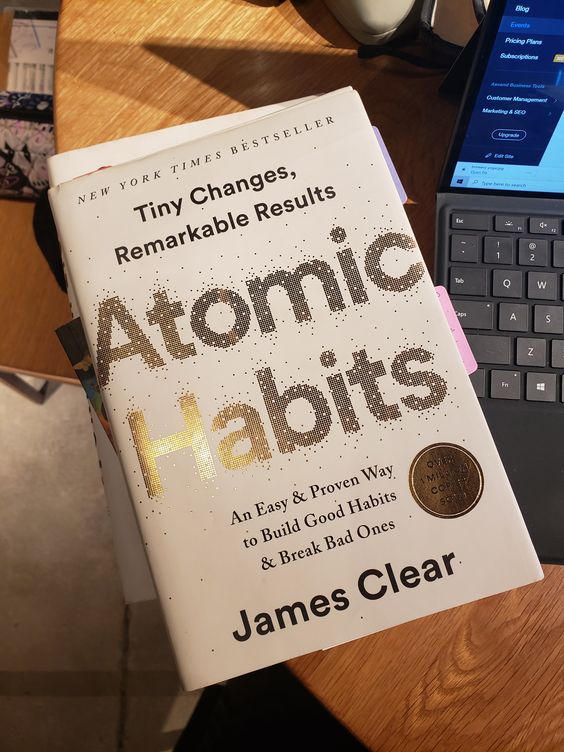The 7 Habits of Highly Effective People Book Summary
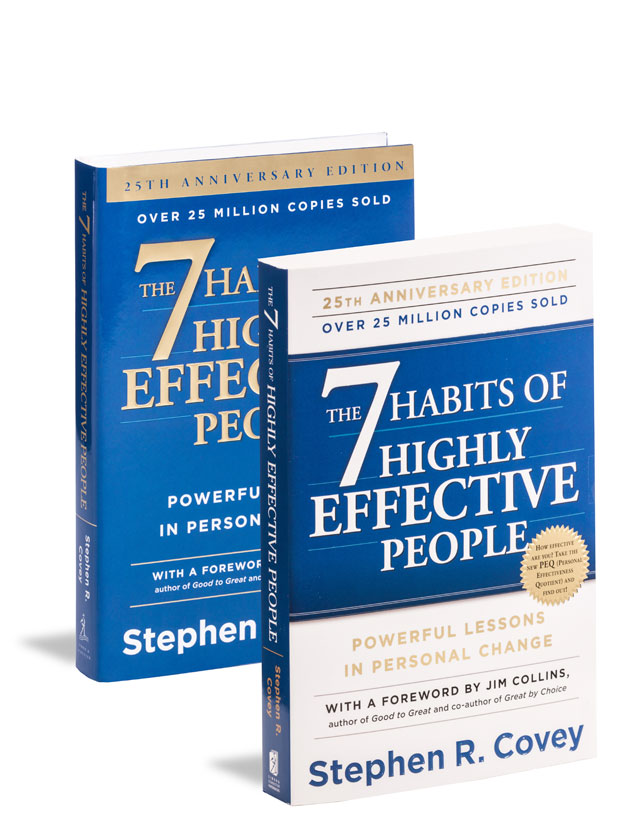
The 7 Habits of Highly Effective People is a personal development book by Stephen R Covey, published in 1989. Covey held many titles, including an American educator, a businessman, an author, and a keynote speaker. In this book, he offers an integrated, holistic, principle-centered approach to solving professional and personal issues. With crucial insights and pointed anecdotes, the author reveals the step-by-step pathways of living a highly effective life. The book covers the 7 habits that highly effective individuals embrace, including;
- Be Proactive
- Begin with the end in mind
- Put first things first
- Think win-win
- Seek first to understand, then to be understood
- Synergize
- Sharpen the saw
The 7 Habits of Highly Effective People book is divided into four main parts, where part one covers the basic idea behind his concepts. In parts 2, 3, and 4, the book explores the 7 habits that highly effective people embrace or have. The three parts also narrate how the seven earlier mentioned habits can be applied in both professional and personal settings.
The 7 Habits of Highly Effective People Part 1: Principles and Paradigm
In part one of this book, Covey discusses the concept of ethics versus personality, which are key concepts in behavior. Exploring character ethics, they deal with an individual on the inside. On the other hand, personality ethics explores how an individual appears on the outside. Exploring the character traits mentioned in part one of the book, they are rooted in character ethics and ensure long-term achievement. According to Covey, when people focus on principle-centered paradigms, they succeed. In this case, principle refers to unalterable natural laws such as honesty and fairness.
Suppose an individual focuses on the first three habits, also called “Private Victory,” including “proactive, starting with the end in mind, and putting first things first” there is a higher likelihood of establishing independence. Once independence has been established, it becomes easier for people to foster interdependence.
The 7 Habits of Highly Effective People Part 2: Private Victory
In section 2 of the book, Covey explores the first three habits of highly effective people. These habits include being proactive, starting with the end in mind, and putting first things first.
Habit 1: Be Proactive
Being proactive is the first and most crucial habit an effective individual can ever have. In this case, being proactive means taking the initiative and responsibility for one’s life. While reactive people tend to be driven by feelings, proactive individuals, on the other hand, are driven by values. This section shows that people’s proactivity is seen in their ability to stick to commitments made to themselves and others. Commitments made to oneself include self-improvement and personal growth. Concluding this habit, Covey encourages readers to undertake a 30-day proactivity test where they make small commitments and ensure they stick to them.
Habit 2: Begin with the End in Mind
The second habit, per the book, is, to begin with the end in mind. This concept is based on the principle that all things are created twice, including the mental creation (first) and the physical creation (second). As the building tends to follow the blueprint, the physical tends to follow the physical creation.
If you do not sharpen your ability to envision who you are and what you want, you tend to empower circumstances and others to shape your life by default. According to Covey, one of the key ways to incorporate habit two into their life is by creating a personal mission statement. A personal mission statement focuses on what wants to be attained, puts goals into focus, affirms who you are, and moves ideas into the real world.
Habit 3: Put First Things First
In this chapter, Covey requests the readers to answer the below questions;
- What one thing could you do regularly that you aren’t currently doing that would improve your personal life?
- Similarly, what one thing could you do to improve your business or professional life?
The third habit, “put first things first, “seems like a practical fulfillment of the two previous habits where the first habit encourages readers to know they are responsible for their lives. Habit two, on the other hand, assists’ readers in visualizing their lives and identifying key values. The third habit focuses on effective self-management practice through an independent will. By asking yourself the above two questions, you develop awareness that you have adequate power to change your current life circumstances.
Successfully “putting first things first” requires an effective tie management approach. Even though there are many self-management approaches, Covey suggests adopting the fourth-generation time management approach. The fourth-generation time management approach has four quadrants, as shown in the diagram below.
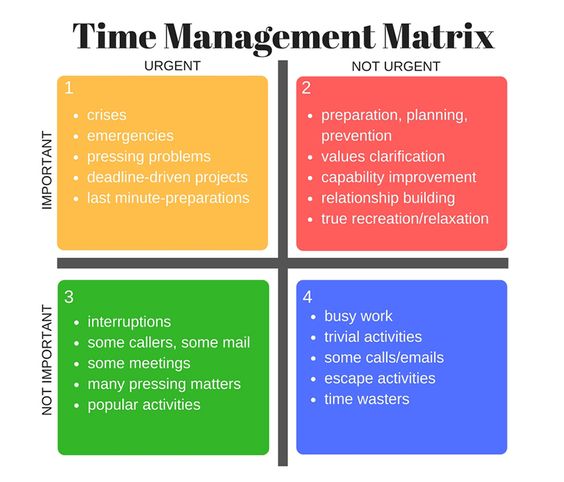
The 7 Habits of Highly Effective People Part 3: Public Victory
Section 3 of the book discusses habits 4 (think win/win),5 (seek first to understand, then to be understood), and 6 (synergize), which are crucial for interdependence.
Habit 4: Think Win/Win
According to Covey, the win/win is not a technique. On the contrary, it is a philosophy for human interaction and collaboration. The habit seeks out mutual benefit for the concerned individuals. In this case, the agreements and solutions are mutually beneficial, and the parties are satisfied with the outcomes. People who embrace this concept views life as a cooperative event and not as a competition.
To adopt the win/win mindset, cultivating interpersonal leadership is key. Such involves exercising self-awareness, imagination, conscience, and independent will while interacting with others. Covey adds that to become a win/win leader, one should embrace character, relationships, agreements, win/win performance agreements, and supportive systems and processes.
Habit 5: Seek First to Understand, then to be Understood
Highly effective people have good communication skills. However, many seek to be understood and get points across. Such behaviors make others feel completely ignored. If you ever want to improve your interpersonal relations, you must get to understand situations before attempting to make yourself understood. To become an effective person, try understanding others before interjecting or casting biases or having expectations on them.
Habit 6: Synergize
Synergizing means that “two heads are better than one.” Effective people believe in open-mindedness and teamwork and enjoy adventure in finding new solutions to old issues. When people embrace synergy, they likely incorporate the desire to attain the win/win agreement with empathic communication. At its core, synergy requires openness, communication, and trust.
Part 4:Renewal
In the book’s last section, Covey discusses the 7th habit, “Sharpen the saw.”
Habit 7: Sharpen the Saw
In this chapter, Cover emphasizes the importance of individuals caring for their emotional, physical, spiritual, and mental aspects. When these aspects are taken care of, it becomes easy to be competent in adopting earlier discussed habits. According to the author, people should exercise regularly, nurture close relationships and pray.
10 Lessons from the Book
- Leadership necessitates communicating with others concerning their self-worth and potential.
- Personal paradigms, whether right or wrong, are key foundations of attitudes, behaviors, and, ultimately, our relations with others.
- To make relatively slight life-related choices, one should focus on attitudes and behaviors.
- Work on basic paradigms to make notable quantum changes.
- Sow thoughts, earn actions. Sow actions, reap habits. Sow habits, reap a character. Lastly, sow a character, reap a destiny.
- Private triumphs go before public triumphs.
- It is not what happens that hurts but the response embraced afterward
- Starting with the end in mind is grounded on the principle that all things are created twice. There is a mental, also known as initial creation, and a physical or second creation.
- If you do not sharpen your ability to envision who you are and what you want, you tend to empower circumstances and others to shape your life by default.
- One’s proactivity is seen in their ability to stick to commitments made to themselves and others
